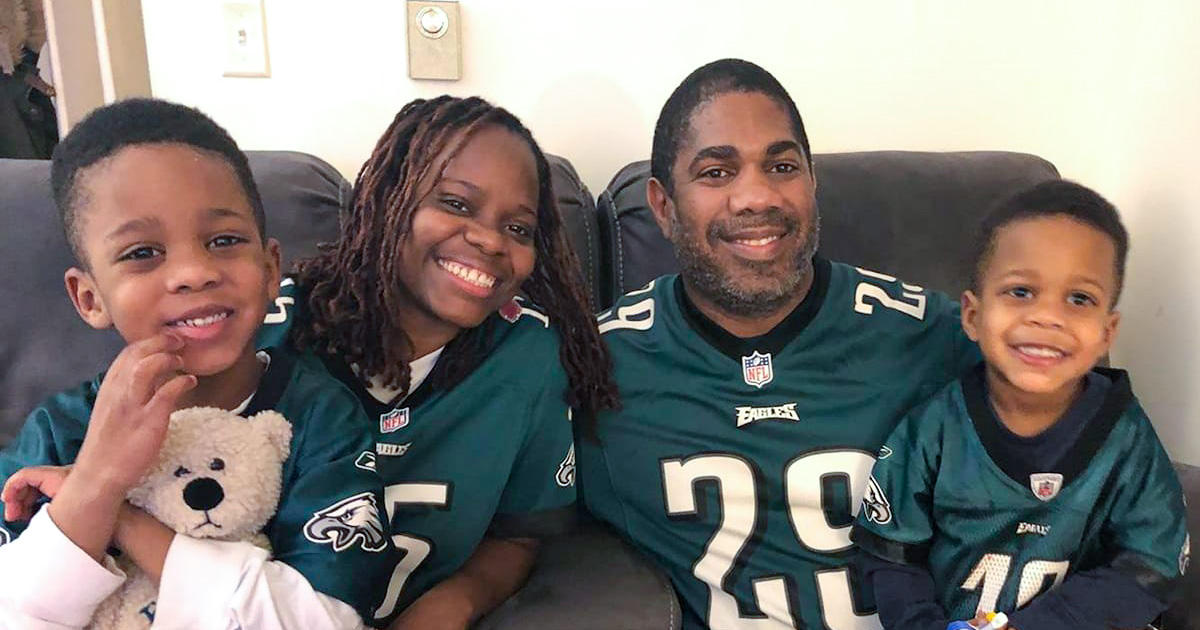Early on in my life, communicating and connecting with people wasn’t something that came naturally to me. Even now, I have to make a concerted effort to express myself and engage others to learn what they are thinking and feeling. In high school and college, I took courses to get better at these skills, but it’s still not really my comfort zone. I’ve had to challenge myself to be more extroverted, to push myself beyond what’s most comfortable to connect with colleagues and clients.
Today I’m a senior program lead at Mathematica, where I direct projects focused on developing performance management tools within case management systems. I lead multidisciplinary teams in translating policy into digital implementations designed to support program participants and improve program outcomes. Before coming to Mathematica, I worked for an industrial supply company in its warehouse. Working in supply chain management required a completely different set of people skills than I use now. It was basically an Amazon-type warehouse and the job was pretty predictable. I checked orders, made sure people were where they were supposed to be, and made sure everyone understood their part of the process and the overall operation so that everything shipped out on time and we hit all of our relevant metrics.
As a warehouse manager, I was required to have very formal, structured communication with employees. We had reports on every metric and all of my employees were graded based on their performance against those numbers. If they didn’t meet the threshold on a metric or committed too many errors, you’d have to put them on a performance plan or fire them. I was only 25 or 26, right out of graduate school, and had to have these performance conversations with people who had been working on the line for 20+ years. This warehouse was their livelihood, and the difference between success and losing their job could be a small as losing one screw. It wasn’t an ideal environment for developing trust with people you’re working with, but it also made me think about the importance of connecting with people and finding different ways to communicate. I eventually built trust with my team by maximizing the time I spent on the warehouse floor every day to assure my team that I understood the unique challenges of our operation and would take part in finding solutions. I also focused on actively listening to my team and using the experience and expertise they shared with me to improve operations.
My educational training in undergraduate and graduate school was focused on quantitative political science, so working in supply-chain management was a big departure from the kinds of issues and questions I found interesting. However, supply chain management gave me an opportunity to hone my quantitative and analytical skills in a much different context, which helped solidify my understanding of how to use data analysis techniques. It also gave me an opportunity to experience a different kind of client-centered culture than found in academia. As I improved my analytical skills, I remained interested in public policy. So when I saw an opportunity to work at Mathematica and focus on policy questions, it spoke to the kinds of issues I was more interested in. My engagement with policy and research eased the transition from the warehouse.
However, in coming to Mathematica, I found I needed to adjust to how we communicated within our projects and with clients and partners. This ability to adjust has proven to be even more important as Mathematica has grown and our work has expanded. When the team is composed of more than just a senior researcher and a couple of research assistants, but rather a whole team of different people bringing various skills to the table, we have to be more intentional about how and when we communicate with each other. We also need to build and sustain relationships with clients over time that support the work we’re engaged in and foster opportunities for the future. At their core, these relationships are based on the quality of our service and our ability to maintain and manage high-quality interactions across larger teams.
Compared with when I started, we’re a larger organization that works across different teams more often. And importantly, we’re also much more focused on really understanding our clients at a deeper level. Good communicators are constantly thinking about how to structure opportunity for their clients and teams. We’re not fulfilling orders in a warehouse—the need to complete a deliverable on time is a given—but leading means clearly structuring work so that everybody is more likely to succeed. Whether it involves filling a long order for a production company or cleaning administrative data for a client, it is important to center one’s communication around a shared understanding of the client’s needs and to work collaboratively, honoring the unique contributions of each team member.



